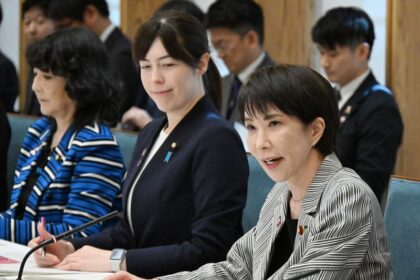Japan’s Youth and the Declining Desire for Children
Japan, once renowned for its postwar baby boom and bustling cities, now faces a demographic crisis that is reshaping its society. Recent surveys reveal a striking trend: fewer young Japanese people want to have children, and the numbers are falling year after year. This shift is not just a personal choice but a reflection of deep economic, social, and cultural changes that have profound implications for the country’s future.
- Japan’s Youth and the Declining Desire for Children
- Economic Insecurity: The High Cost of Raising Children
- Changing Attitudes Toward Marriage and Family
- The Psychological Dimension: Hope, Optimism, and Social Support
- Workplace Culture and the Pursuit of Balance
- Government Responses: Policies and Their Limits
- Education, Social Values, and the Role of Women
- Comparative Perspectives: East Asia’s Shared Challenge
- Immigration: A Controversial Solution?
- In Summary
In April 2025, a survey by human-resource services provider Mynavi found that only about 40% of Japanese people in their twenties said they would like to have children. This marks the second consecutive year of decline, with the desire for parenthood dropping by over 8 percentage points since 2023. Among unmarried respondents in their thirties, the figure was even lower at 30.8%. The reasons behind this trend are complex and interconnected, touching on everything from economic insecurity to evolving gender roles and changing attitudes toward marriage.
Economic Insecurity: The High Cost of Raising Children
One of the most significant factors driving young Japanese away from parenthood is economic insecurity. The cost of raising children in Japan is high, especially in urban centers where housing, education, and childcare expenses can be overwhelming. In the Mynavi survey, 41.1% of respondents in their twenties cited the expense of raising children as a primary reason for not wanting kids. Another 40.7% expressed a lack of confidence in their ability to raise a child, often linked to financial concerns.
Additional research supports these findings. A nationwide survey led by Nihon University’s Suetomi Kaori found that 52% of young Japanese aged 15 to 39 do not want children. Many reported economic hardships, such as being unable to afford travel, social activities, or even basic necessities like food. Over 60% of those who did not want children had annual incomes under 2.99 million yen (about $20,000), highlighting the direct link between financial stability and family planning.
Government efforts to address these issues have included increasing child care spending and removing income caps for child benefits. However, skepticism remains high. As Foreign Policy notes, many Japanese doubt that financial incentives alone can reverse the trend, given the deeper structural issues at play, such as stagnant wages, high living costs, and persistent gender inequality.
Changing Attitudes Toward Marriage and Family
Marriage and childbirth are closely linked in Japan, where births outside of marriage remain rare compared to Western countries. Yet, attitudes toward marriage itself are shifting dramatically among young people. The same Mynavi survey found that only 48% of people in their twenties and 38.9% in their thirties consider marriage personally necessary—a drop of more than 10 percentage points since 2022.
According to a 2021 survey by Japan’s National Institute of Population and Social Security, a record 17.3% of men and 14.6% of women aged 18 to 34 said they had no intention of ever marrying. This is a dramatic increase from the early 1980s, when only 2.3% of men and 4.1% of women felt this way. Experts warn that this trend will further undermine efforts to address the country’s low birthrate.
Several factors contribute to this shift:
- Desire for Independence: Many young women want to enjoy the freedoms that come with being single and having a career, while men cite concerns about job security and their ability to provide for a family.
- Work-Life Balance: Japan’s notoriously long working hours and demanding corporate culture leave little time for dating, marriage, or parenting.
- Gender Roles: Traditional expectations that women should be primary caregivers deter many from marriage and motherhood, especially as more women pursue higher education and careers.
As sociologist Shigeki Matsuda of Chukyo University explained, “If the number of people who don’t want to marry continues to increase, the government will be forced to review its policies, and it could lead to a further decline in fertility.”
The Psychological Dimension: Hope, Optimism, and Social Support
Beyond economics and social norms, there is a psychological dimension to Japan’s demographic crisis. Multiple studies highlight a pervasive sense of disenchantment and lack of hope among Japanese youth. The Nippon Foundation’s 2024 survey of 18-year-olds found that only 15% believed their country’s future would improve, and just 60% had dreams for their own future—both the lowest among six countries surveyed, including the United States, United Kingdom, China, South Korea, and India.
Japanese youth also reported the lowest self-esteem and sense of agency, with less than half believing their actions could change society. Many feel that the country prioritizes support for the elderly over the young, contributing to a sense of alienation and uncertainty about the future. This lack of optimism is a significant barrier to long-term commitments like marriage and parenthood.
Academic research by Yuki Yamaoka underscores the relationship between this lack of hope and Japan’s low birthrate. The perception that young people cannot influence their country, combined with economic uncertainties and traditional values that resist change, creates a climate where starting a family feels risky or unattainable.
Workplace Culture and the Pursuit of Balance
Japan’s rigid workplace culture has long been a barrier to family life. However, younger generations are beginning to challenge these norms, seeking better work-life balance and more flexible career paths. As reported by The Japan Times, young workers are increasingly prioritizing jobs that offer personal growth, meaningful work, and time off. Some companies are responding by offering benefits like three-day weekends and opportunities for skill development.
Despite these changes, progress is slow. Many women remain in precarious jobs and face a significant gender wage gap. Social expectations still place the burden of domestic work and childcare on women, making it difficult to balance careers and family. Government policies have largely focused on traditional married couples, often excluding single parents and LGBTQ families from support programs.
Government Responses: Policies and Their Limits
Successive Japanese governments have launched a variety of initiatives to encourage marriage and childbirth. These include financial bonuses for families, expanded childcare services, and even matchmaking apps sponsored by local governments. For example, Tokyo’s “Matching App” aims to help singles find marriage partners, but critics argue that such efforts are superficial and fail to address the deeper economic and social barriers facing young people.
Experts argue that more structural reforms are needed. These include:
- Addressing wage stagnation and job insecurity
- Reducing the cost of living, especially in urban areas
- Promoting gender equality in the workplace and at home
- Expanding support for nontraditional families, including single parents and LGBTQ couples
- Improving work-life balance through labor reforms
Without such changes, financial incentives alone are unlikely to reverse the declining birthrate. As one young survey respondent put it, “It’s not just about money. It’s about whether we feel secure enough to build a future.”
Education, Social Values, and the Role of Women
Some commentators suggest that Japan should invest more in family planning education, starting early in schools. This would involve teaching the importance of family, the value of raising children, and the societal benefits of stable family units. However, such proposals face significant cultural resistance. Japanese society has increasingly prioritized career development and economic contribution, especially for women, who are now seen as vital to the workforce.
Efforts to encourage women to prioritize motherhood over careers would likely provoke backlash in a society that values gender equality and personal freedom. As UCANews notes, any attempt to shift the focus away from career advancement for women would be seen as regressive and out of step with modern values.
Comparative Perspectives: East Asia’s Shared Challenge
Japan is not alone in facing a declining birthrate. Other East Asian countries, including China and South Korea, are experiencing similar trends. In China, for example, the “DINK” (dual income, no kids) lifestyle is gaining popularity among young people who face intense career pressures and uncertainty about the future. The phrase “the last generation” has become a viral slogan, reflecting a mood of hopelessness and protest against societal expectations.
In both Japan and China, government policies have shifted from restricting births to encouraging them, but with limited success. Persistent gender inequality, high living costs, and lack of support for nontraditional families continue to undermine these efforts. Many young people in both countries view not having children as a form of self-preservation in the face of economic and social challenges.
Immigration: A Controversial Solution?
With the native population shrinking and the workforce aging, some experts argue that Japan will need to rely more on immigration to sustain its economy and social systems. The government has begun to relax immigration policies, creating new visa categories and allowing some skilled workers to stay indefinitely. The number of foreign nationals in Japan has reached a record high, and public support for immigration reforms is growing.
However, integration remains a challenge. Immigrants often face language barriers, limited social support, and difficult paths to permanent residency. Japan’s strong sense of ethnic homogeneity and limited anti-discrimination laws make it hard for newcomers to fully participate in society. Nevertheless, improved support for immigrants is seen as essential for addressing the demographic crisis and ensuring the country’s future prosperity.
In Summary
- Surveys show a sharp decline in the desire for children among Japanese youth, driven by economic insecurity, changing social norms, and lack of optimism about the future.
- Marriage rates are falling, and traditional gender roles are being challenged, but progress toward work-life balance and gender equality is slow.
- Government policies focused on financial incentives have had limited impact; deeper structural reforms are needed to address wage stagnation, high living costs, and support for diverse families.
- Japan’s demographic crisis is mirrored in other East Asian countries, highlighting a regional challenge rooted in modern economic and social realities.
- Immigration is increasingly seen as a necessary, though controversial, part of the solution to Japan’s shrinking and aging population.
- The future of Japan will depend on its ability to adapt to these changes, support its youth, and create a society where starting a family feels both possible and desirable.












